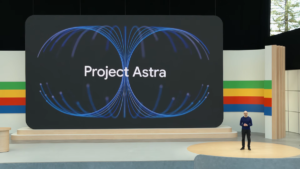DeepMind AI Employees Allegedly Bound by Strict Noncompete Agreements, Restricting Moves to Competitors like Microsoft, While Offering Year-Long Paid Time Off

Google and DeepMind’s Bold Move: Non-Compete Clauses for AI Staff
Introduction to Google’s Non-Compete Strategy
Recently, reports have emerged regarding Google and its subsidiary, DeepMind, introducing stringent non-compete clauses aimed at retaining their top AI talent. These measures stem from the fierce competition in the tech industry for skilled professionals, particularly in artificial intelligence. As companies like Microsoft and Amazon ramp up their AI capabilities, Google is taking proactive steps to ensure that its staff does not join rival firms.
What Are Non-Compete Clauses?
Non-compete clauses are contractual agreements that prevent employees from working with competitors for a defined period after leaving a company. In Google’s case, they are reportedly imposing these clauses to discourage employees from transitioning to rival firms, effectively restricting their mobility within the industry.
Key Features of Google’s Non-Compete Agreement:
- Duration: Typically, these agreements can last for a specific timeframe, often structured around a year or more.
- Scope: They usually focus on particular roles or sectors within AI to maintain confidentiality and protect intellectual property.
- Compensation: In many instances, companies may offer compensation packages, which in Google’s case, has included a year-long paid leave for staff within the non-compete framework. This ensures that employees remain financially supported during this period while preventing them from joining competitors.
Implications of This Strategy
Protecting Intellectual Property
One of the primary motivations behind implementing these clauses is safeguarding proprietary technologies and research. By keeping talent tied to the company, Google aims to prevent leaks of sensitive information that could give competitors an edge in the AI domain.
Financial Considerations
Google’s strategy reportedly includes financial incentives. Employees caught in these non-compete clauses receive a year’s salary while being effectively sidelined from any competing work. This unusual approach has sparked discussions about the company’s willingness to invest significantly in its workforce to deter defections.
Reactions from Employees and the Industry
Employee Perspective
Many employees have mixed feelings about these non-compete clauses. While a guaranteed salary might sound appealing, it also confines them to a single employer for an extended period. This lack of mobility can be frustrating for professionals eager to advance their careers.
Industry Impact
The move has broader implications for the tech industry. As companies increasingly lock down their talent, it may spark a talent cold war where firms heavily invest in securing their workforce. This could lead to a stagnation of innovation as competition for new ideas is curtailed.
Alternatives to Non-Compete Clauses
Companies are now considering alternative methods to retain talent. Instead of imposing stringent contracts, some firms are focusing on enhancing workplace culture, offering competitive salaries, and providing benefits that cater to employee well-being.
Possible Approaches Include:
- Flexible Work Arrangements: Promoting remote work or hybrid models to appeal to a wider range of employees.
- Career Development Programs: Offering training and growth opportunities to keep employees engaged and invested in their work.
- Incentives and Benefits: Providing bonuses and other financial incentives based on performance and loyalty rather than restrictive contracts.
The Future of Talent Retention in Tech
As the war for AI talent intensifies, companies will need to explore innovative strategies beyond traditional non-compete agreements. In a space filled with rapid advancements and shifting dynamics, the focus may shift toward collaborative work environments that promote talent sharing while safeguarding intellectual property.
In summary, Google’s approach reflects a significant shift in talent management strategies within the tech industry. As competitors continue to vie for top talent, it remains to be seen how these tactics will reshape the landscape of employment in AI and technology.




